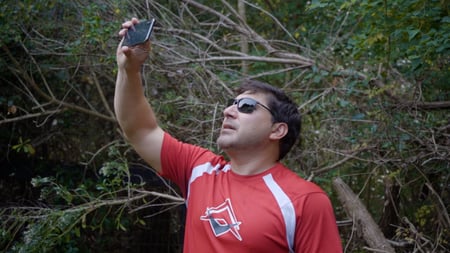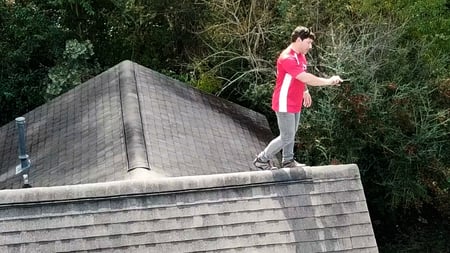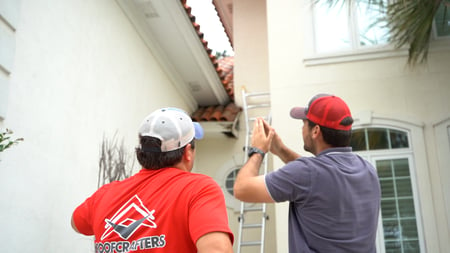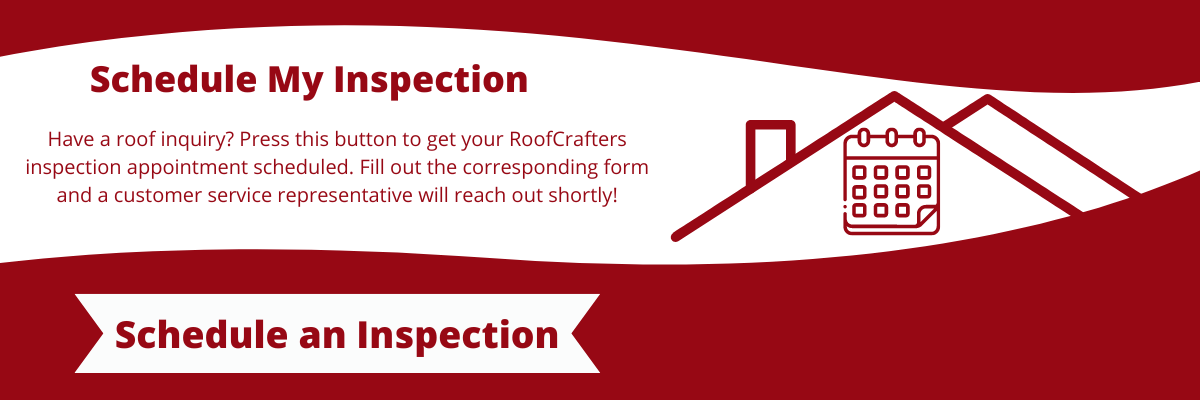
When it comes to roofing services, the practice of capturing comprehensive photographs of the entire property before, during, and after roofing projects has become an integral aspect of professionalism. Why? Well, for starters, we want to make sure that your property is not only in tip-top shape before your roofing project commences, but is left looking better than we found it!
At RoofCrafters, we believe that this meticulous documentation serves a multifaceted purpose, ranging from aiding in accurate assessments and enhancing communication to providing essential evidence for insurance claims and legal matters. So, if any sort of problem were to occur during your service, you can rest assured that it will be documented.
Think of it as a backup plan. You know that you have the documentation that you need should things go awry. So, if you’re due for an upcoming service, or if you’ve ever wondered in the past why your contractor is taking tons of photos, you’re in the right place. Let’s start by reviewing why exactly roofing companies do this, why it's important, and why it's a major red flag if your roofing company isn’t taking photos before, during, and after your project!
Why Roofing Companies Take Photos of Your Entire Property

So, you’re roofing company is taking pictures of your entire property before and after your roofing service, and you’re wondering why they do this. Wouldn’t they just want photos of the roof? You would think so, right? However, your entire property is important, so a contractor taking photos of everything is a good thing. That being said, roofing companies will take photos of the entire property for these key reasons:
Documentation: Taking photos of the entire property provides documentation of the condition of the roof and surrounding areas before any work begins. This documentation can be used for insurance purposes, legal reasons, or to provide evidence of the condition of the property.
Assessment: Photos help roofing professionals assess the scope of the project more accurately. By capturing the entire property, they can identify any potential challenges or areas that may require special attention during the roofing process.
Before-and-after comparison: Photos serve as a visual record for both the roofing company and the property owner. They allow for easy comparison of the condition of the roof before and after the work is completed, helping to demonstrate the effectiveness of the repairs or installation.
Communication: Photos can be used as a communication tool between the roofing company and the property owner. They provide a visual reference that helps both parties understand the work that needs to be done and any issues that may arise during the process.
Quality assurance: By documenting the entire property, roofing companies can ensure that they are providing high-quality service to their customers. The photos serve as proof that the work was done correctly and that the property was left in good condition.
Now you see, taking photos of the entire property is a standard practice in the roofing industry that helps ensure transparency, accountability, and quality service delivery!
Why Is It Important for Roofing Companies to Take Photos?

Roofing companies find it important to take photos of the entire property for various reasons. Firstly, these photos serve as meticulous documentation of the property's condition before any roofing work commences. Such documentation proves invaluable for insurance claims, legal matters, or simply as evidence of the property's state before roofing activities.
Comprehensive photos aid roofing professionals in assessing the project's scope accurately. By capturing the entirety of the property, they can identify potential challenges or areas requiring special attention during the roofing process. This ensures that the roofing company can plan effectively and anticipate any complications. Remember, before-and-after comparisons facilitated by these photos are essential for both the roofing company and the homeowner. They offer a visual record of the roof's condition pre- and post-repairs or installation, showcasing the effectiveness of the work undertaken.
These images serve as a communication tool between the roofing company and the property owner, facilitating a clear understanding of the required work and any issues encountered during the project. So, the practice of photographing the entire property ensures quality assurance. It provides tangible evidence that the work was conducted correctly and that the property was left in good condition, thereby instilling confidence in both the roofing company and the homeowner.
What If My Roofing Contractor Doesn’t Take Photos?

The RoofCrafters team wants you to know that if your roofing contractor doesn't take photos, it's essential to address this concern with them. It’s a red flag if your contractor isn’t documenting the state of your home before the project, or after. Here's what you can do:
Communicate your concerns: Express your concerns to your roofing contractor about the lack of photo documentation. Explain why you believe it's important to have visual records of the property's condition before and after the roofing work.
Request photos: Politely request that they start taking photos of the property before they begin any work. Emphasize the benefits of having these photos for your records, insurance purposes, and potential future needs.
Ask for an explanation: If your contractor is unwilling to take photos, ask for an explanation. Understanding their reasons may help you determine whether it's a matter of oversight, policy, or if there are legitimate constraints.
Consider alternatives: If the contractor still refuses to take photos or provide a satisfactory explanation, consider looking for alternative roofing companies that are willing to meet your requirements. Many reputable roofing companies understand the importance of documentation and are willing to accommodate such requests.
Document the process yourself: If taking photos yourself is feasible, consider documenting the process independently. While it's not ideal, having your own visual records can still be beneficial for your reference and potential future needs.
Always remember that clear communication is key in addressing any concerns with your contractor! It's essential to ensure that both parties are on the same page regarding expectations and requirements for the roofing project. It is your beloved home, after all!
The Importance of Roofing Project Photos
All in all, the practice of roofing companies taking photos of the entire property is essential for numerous reasons. These visual records serve as detailed documentation, aiding in accurate assessment, facilitating clear communication, and ensuring quality assurance throughout the roofing process.
By capturing the condition of the property before and after the work is completed, these photos provide valuable evidence for insurance claims, legal matters, and future reference. Ultimately, the comprehensive documentation offered by these photos benefits both the roofing company and the property owner.
By doing so, your contractor enhances transparency, accountability, and satisfaction with the completed roofing project. So, if you’ve ever wondered why there are so many photos of your home being taken, there you have it! If you have an upcoming roofing project, or you have questions about scheduling a much-needed service, be sure to hit the “Schedule an Inspection” button down below, and one of our experts will guide you through the process!
My name is David Toth and I am the lead estimator in North Florida with RoofCrafters Roofing. Originally from New Brunswick, I have called Florida home for the past 47 years. I enjoy cooking along with traveling to different historical areas in Florida when I have free time.



